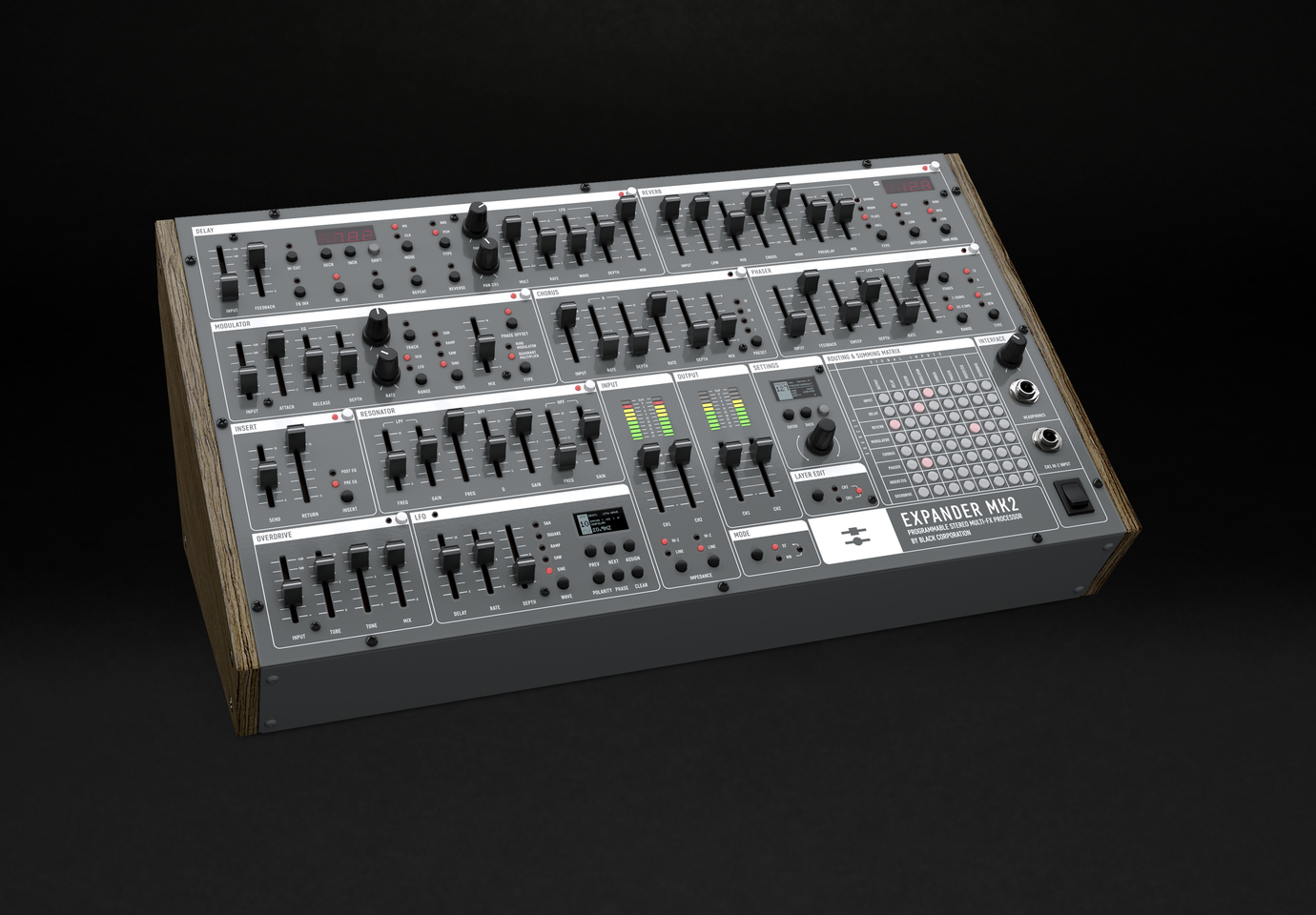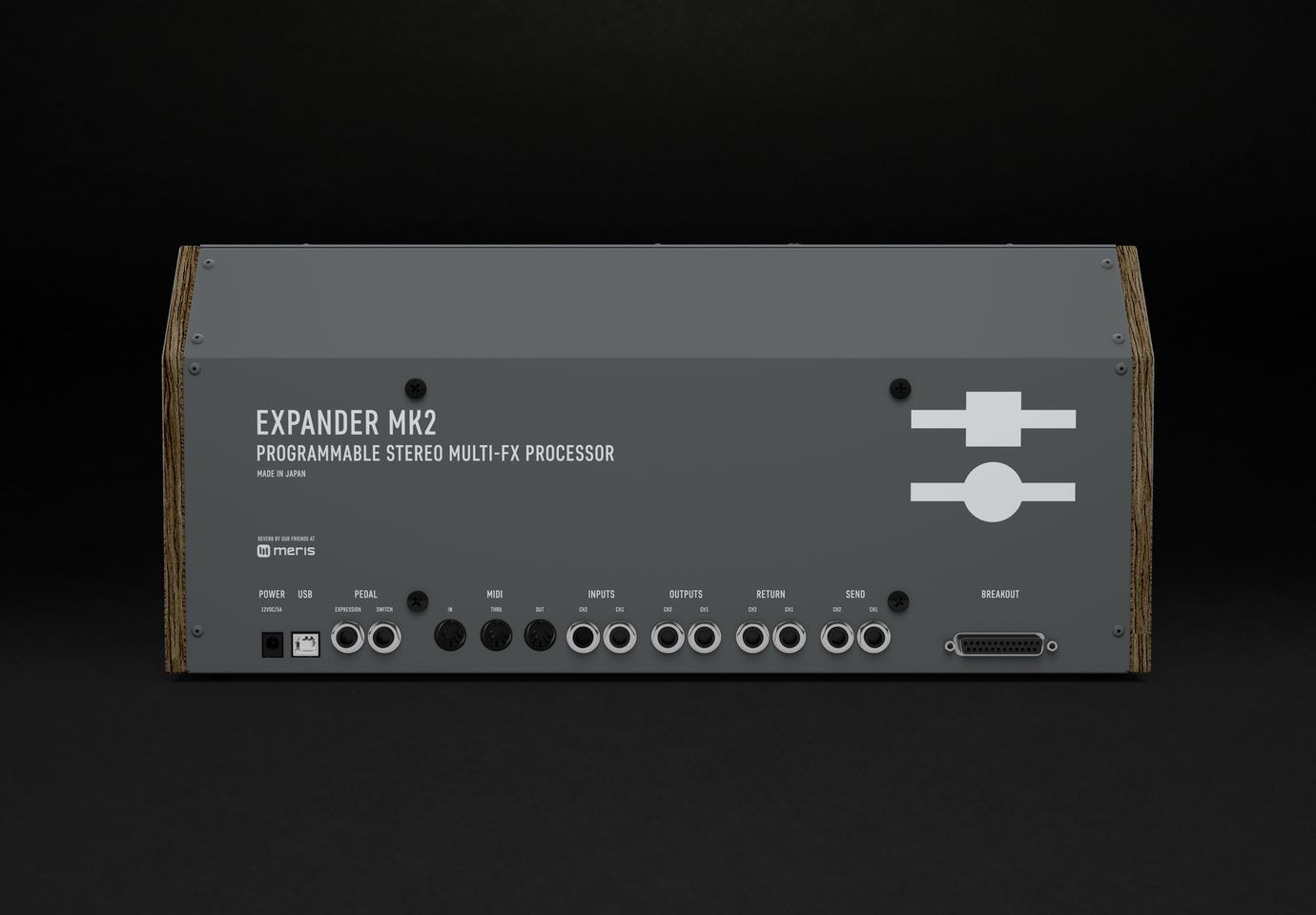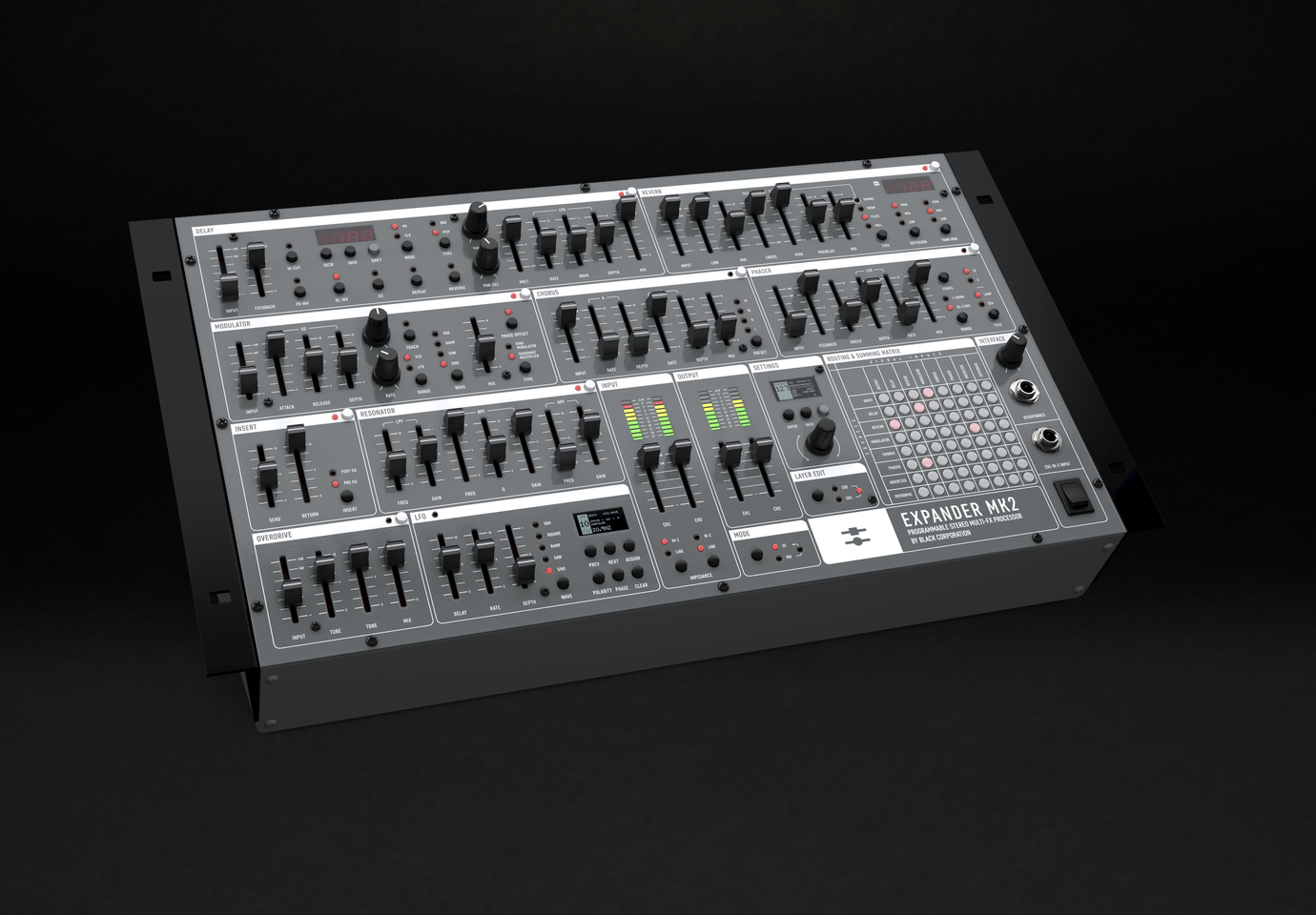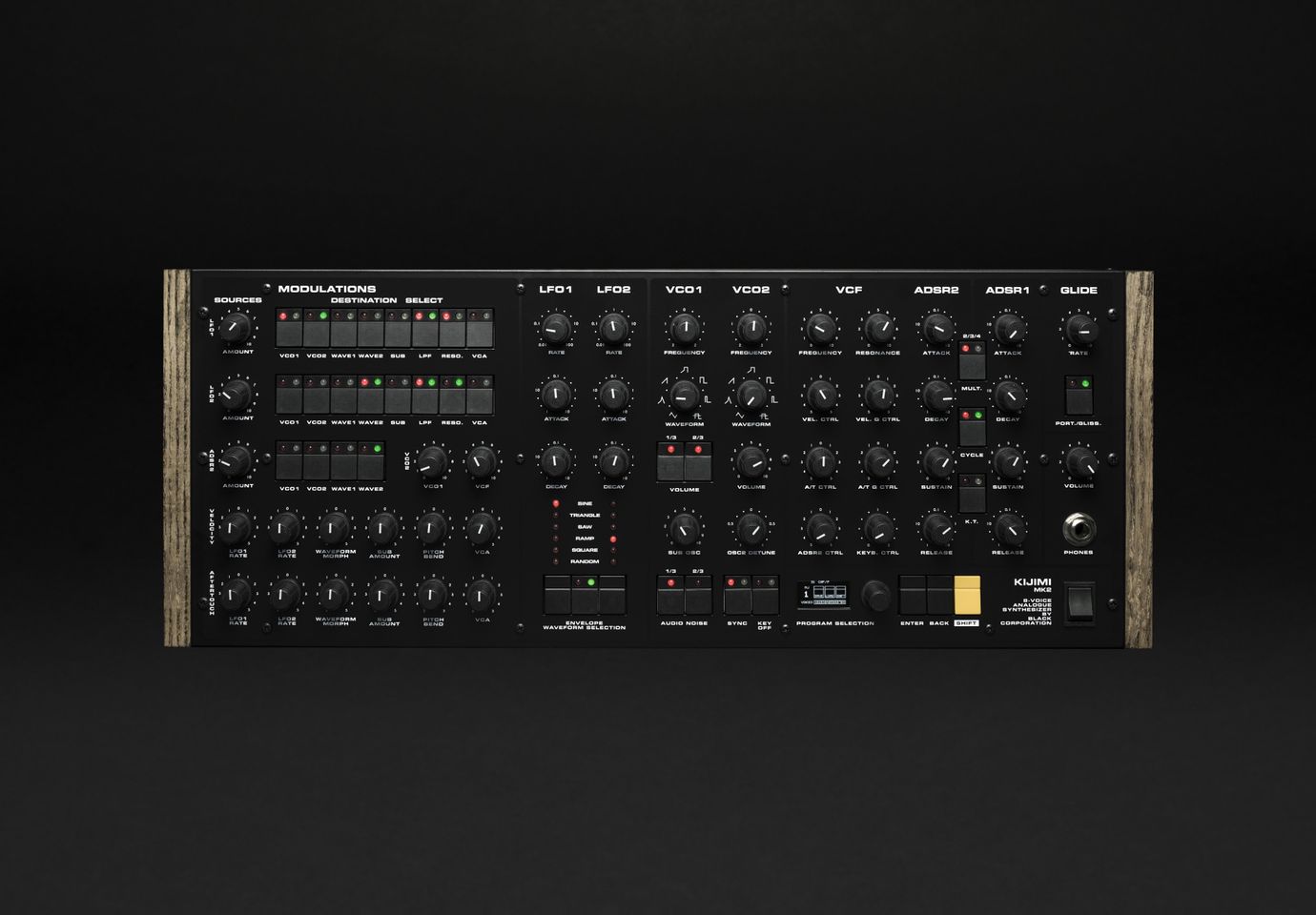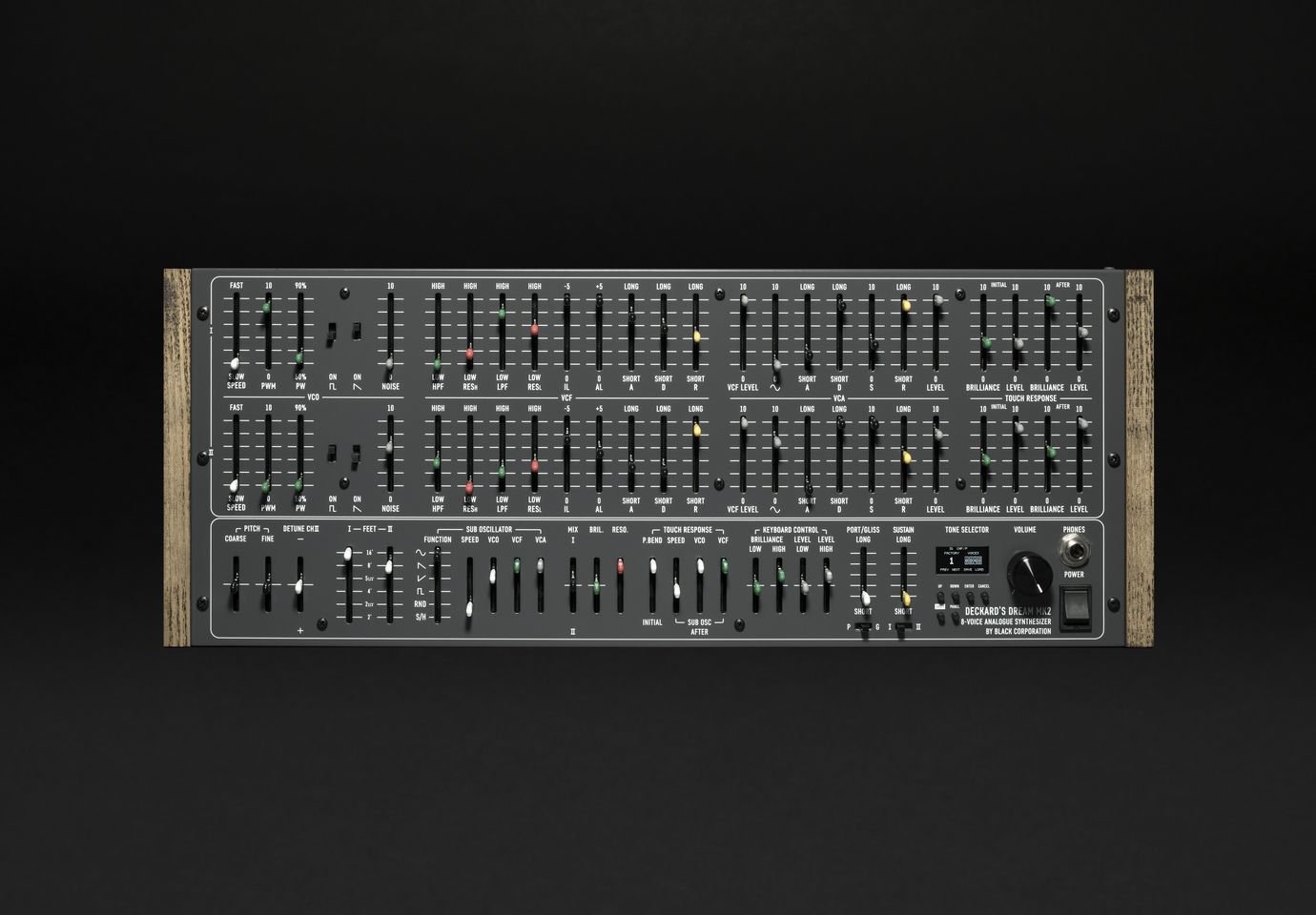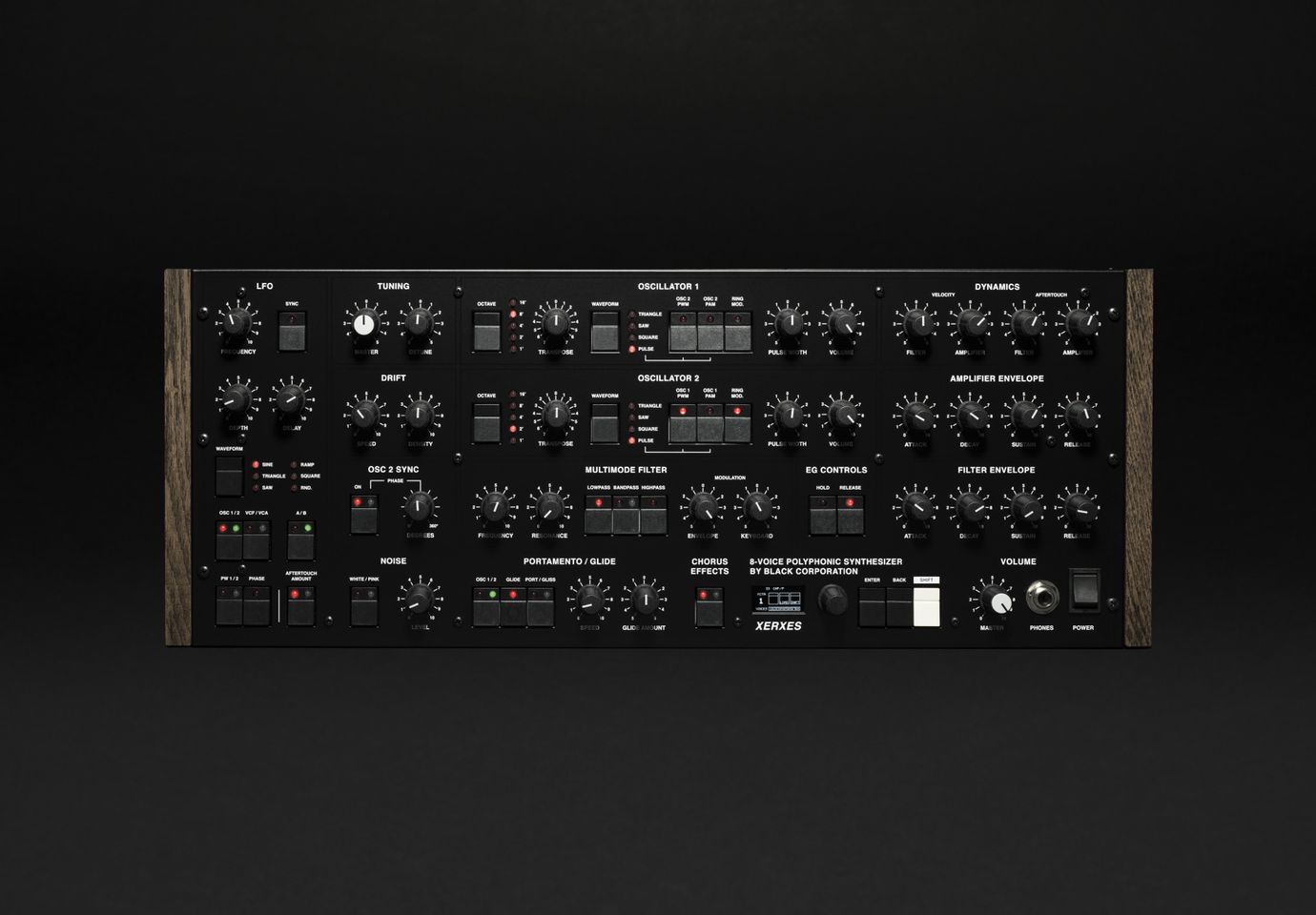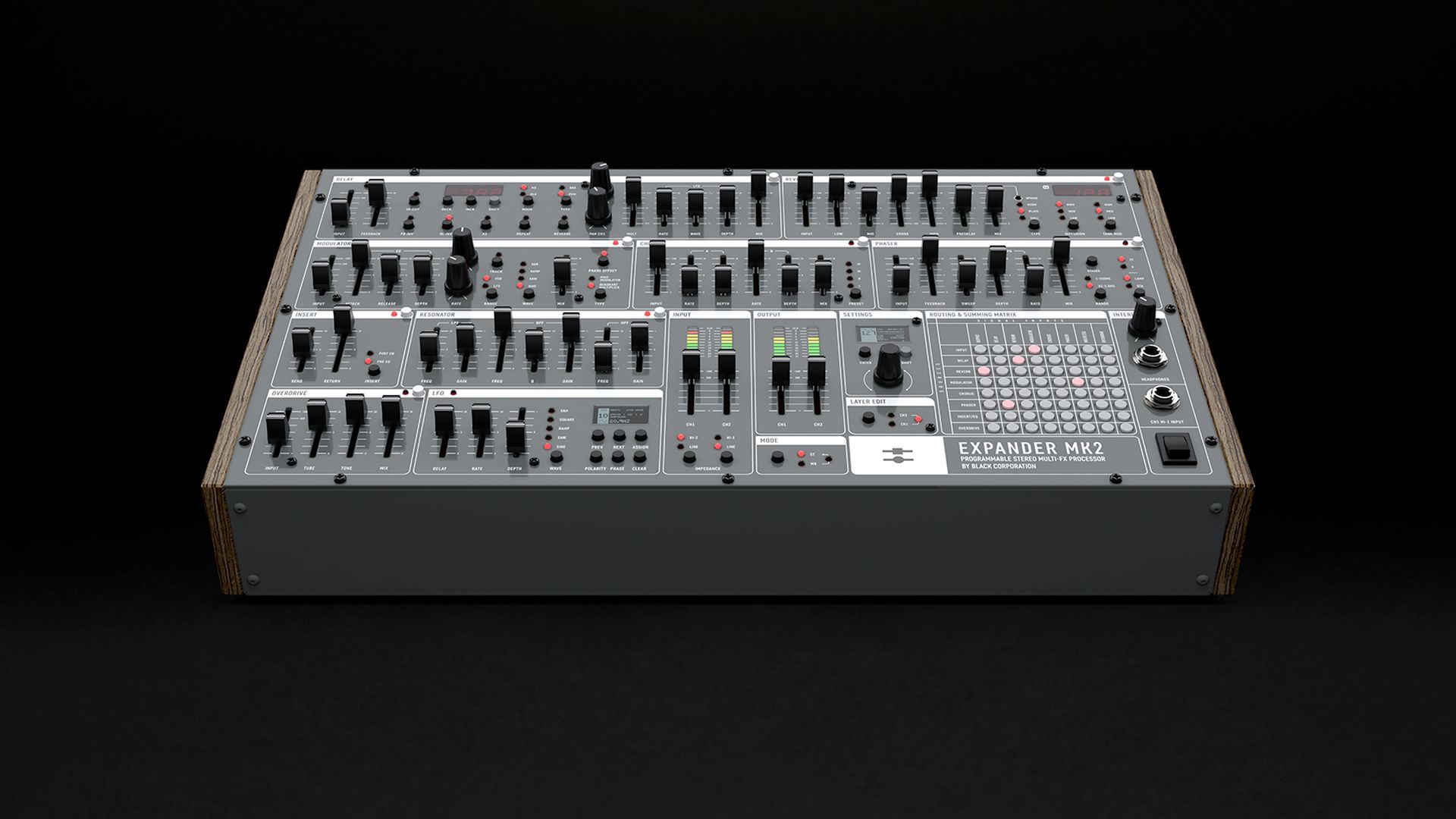
EXPANDER MK2
Programmable stereo multi-fx processor
EXPANDER MK2 is a multi-effects beast—an epic smörgåsbord of all your favorite sound shaping tools, combined with hands-on control of everything you need and a tactile routing interface. Use it with synths, instruments, guitars, and bass—it’s a complete studio in one box for production or stage.
Use it on anything; route it your way
With both balanced line and Hi-Z inputs and stereo and dual-mono inputs and routings, EXPANDER MK2 is ideal for guitarists, bassists, synth users, producers, and instrumentalists alike. It’s also uniquely routable: a full tactile 8x8 matrix with LED-lit switches puts any serial or parallel routing you desire at your fingertips, programmable for each channel individually. Stereo send and return work both with individual 1/4” (6.35mm) jacks and DB25 connector, and you’ll find USB and DIN MIDI (in/out/thru) plus expression and switch pedals. You can even configure EXPANDER MK2 as a 4-channel processor by using the insert send/returns.
Classic digital and analog delays
Lush, classic delay and reverb are available in both analog and digital varieties. The digital delay is based on the legendary PCM42, now with the advantage of a modern CPU and expanded memory. Not only is the hardware authentic, down to the original discrete 12-bit ADC/DACs, optical compressor, and filters, but the PCM42’s engineer Gary Hall helped oversee the EXPANDER MK2’s version. On the pure-analog side, BBD circuitry gives you a warm, rich vintage delay with up to 820ms delay time. Both delays offer panning controls.
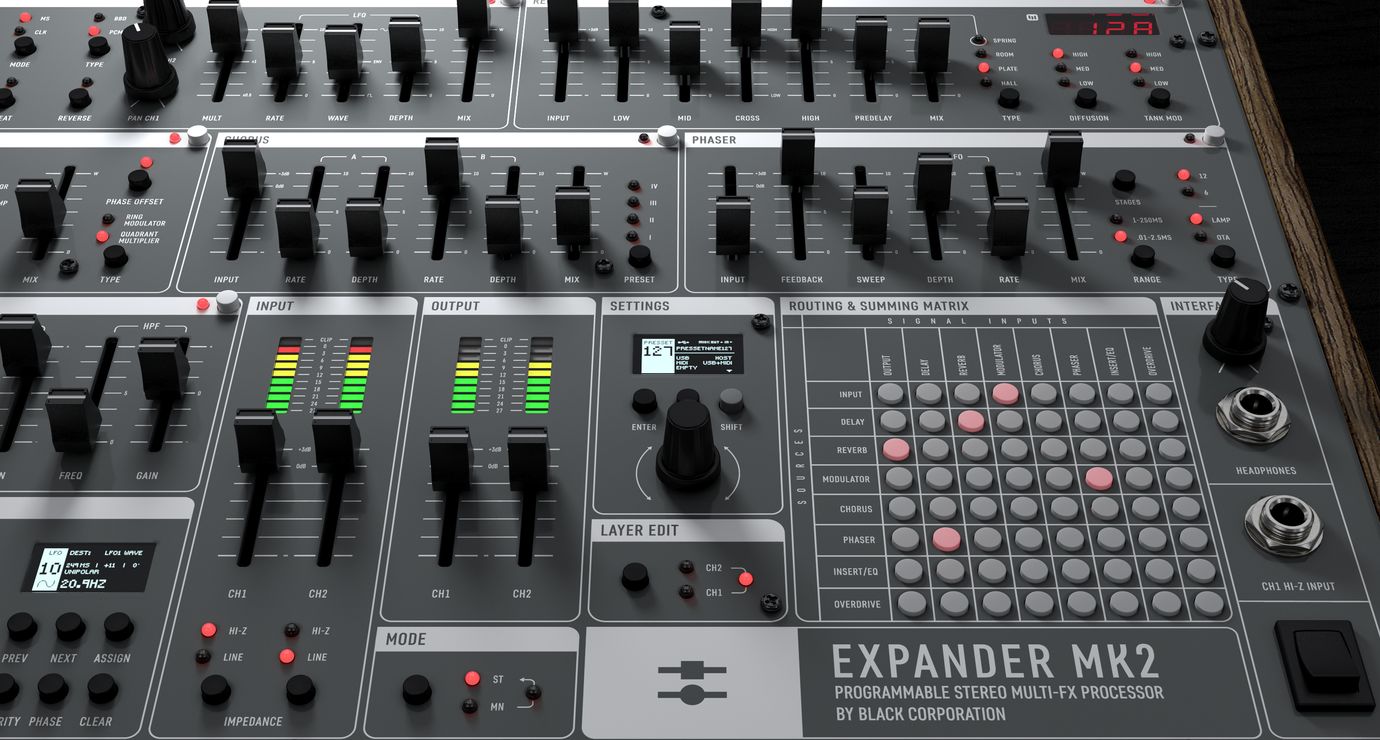
Spacious digital and spring reverbs
Another lush, digital classic, the 224, is faithfully recreated as the Expander’s digital reverb with work by our friends at MERIS. Room, plate, and hall models are available, and faders for high/low EQ, crossover, pre-delay, diffusion, and mix. You’ll also find a complete 2-channel spring reverb, with each channel getting its own dedicated 17” tank, EQ, and digital pre-delay section.
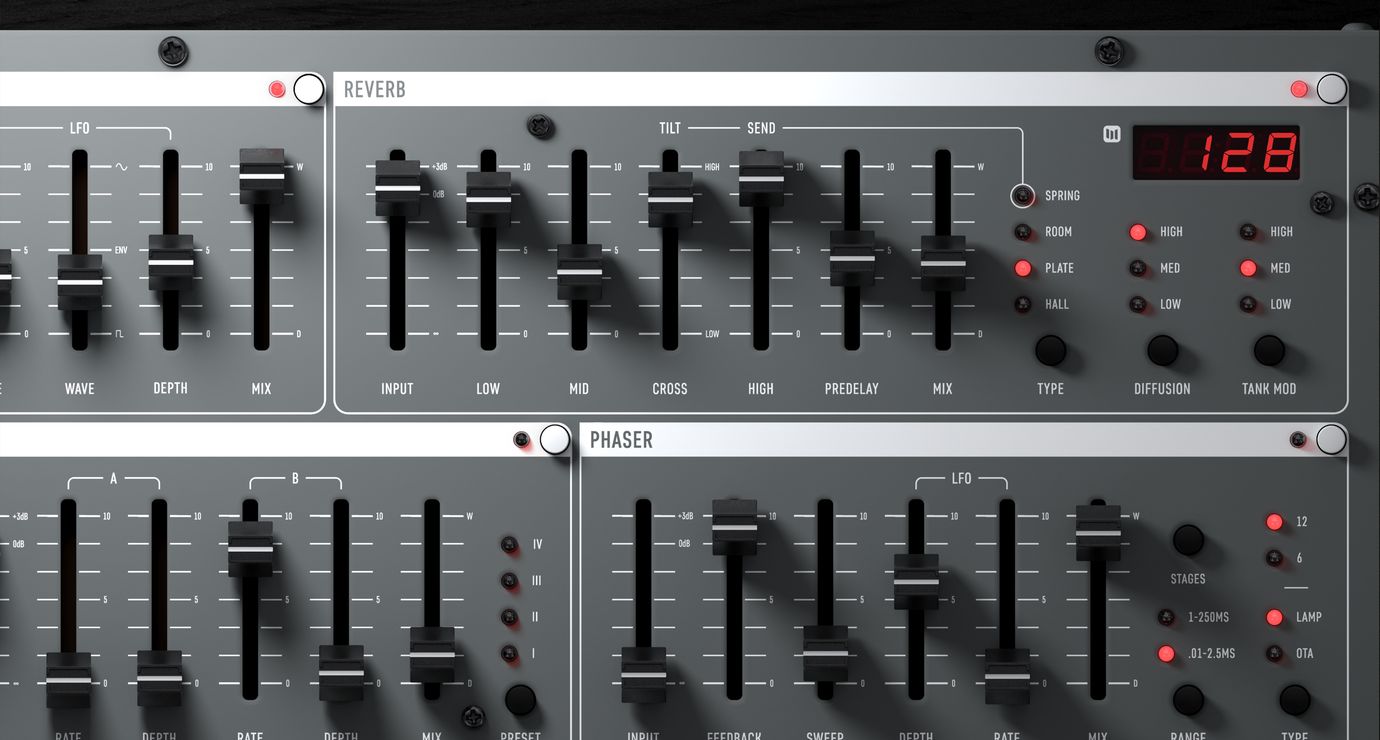
Phaser, Chorus
You’ve got two options for phasers. There's an optical phaser when you want that classic Krautrock modulation-friendly sound. Opt for a fully analog OTA (operational transconductance amplifier)-based 12-stage phaser for warmer, throbbing psychedelic phaser effects. The chorus section offers two separate BBD chorus lines with their own rate and depth controls, with which you can dial in subtle stereo widening or full-on turbulent animation. The beloved four-button chorus is also at your disposal via the I-IV preset buttons when you want to give your source some added dimension.
DRY
EXPANDER MK2 - Space Guitar DRY
EXPANDER MK2 - Funk Guitar DRY
EXPANDER MK2 - Kraut Guitar DRY
EXPANDER MK2 - Chill Guitar DRY
WET
EXPANDER MK2 - Space Guitar WET
EXPANDER MK2 - Funk Guitar WET
EXPANDER MK2 - Kraut Guitar WET
EXPANDER MK2 - Chill Guitar WET
Resonator, Overdrive
The Resonator, found in the insert section, both patches in outboard effects and can be used as an EQ, resonant filter, or modulated resonance/pan effect (via the LFO) and can be routed before or after the insert. There are lowpass, bandpass, and highpass filter bands, plus resonance on the bandpass filter. For added texture and warmth, all the way up to screaming distortion, we’ve incorporated Korg’s Nu-Tube micro tube technology, which uses vacuum fluorescent display technology to deliver the exact overtone characteristics of triode vacuum tubes.
Ring Modulator
As with the other sections, the Modulator is two effects in one. For clean, modern chip sounds, there’s a quadrant multiplier ring modulator. For vintage-style, harmonically rich processing, there’s a second ring modulator based on transformer and diode circuitry. There’s also a reference oscillator, too, with attack and release envelope for pitch, similar to what’s our RACHAEL module.
Animation studio
The LFO section, in combination with the routing matrix, means you can breathe life and movement into any sound, anywhere in the signal path. LFOs include S&H, square, ramp, saw, and sine waveforms, rate, delay and depth controls, polarity, and phase. There’s also a dedicated OLED display for precise control and feedback with one-button assignment.
Fully controllable, solid package
Complete MIDI CC mapping - with connections via either USB or MIDI DIN in/out/thru - gives you total automation and control possibilities. Sync the delay section via MIDI, too (both analog and MIDI sides). Onboard foot and expression pedals make live use easy and accessible. Save and recall all of your settings as presets. Connect inputs and outputs via balanced connectors, and monitor through a dedicated headphone out with its own volume level. An entire studio’s worth of top gear is available in a gorgeous, robust package, with swappable natural wood sides or rack ears both included.
DRY
EXPANDER MK2 - Synth Phaser DRY
EXPANDER MK2 - Drum Machine Spring DRY
EXPANDER MK2 - MPC Spring DRY
EXPANDER MK2 - Xerxes BBD DRY
EXPANDER MK2 - Drum Machine BBD DRY
EXPANDER MK2 - MPC BBD DRY
EXPANDER MK2 - TB-303 overdrive DRY
WET
EXPANDER MK2 - Synth Phaser WET
EXPANDER MK2 - Drum Machine Spring WET
EXPANDER MK2 - MPC Spring WET
EXPANDER MK2 - Xerxes BBD WET
EXPANDER MK2 - Drum Machine BBD WET
EXPANDER MK2 - MPC BBD WET
EXPANDER MK2 - TB-303 overdrive WET


